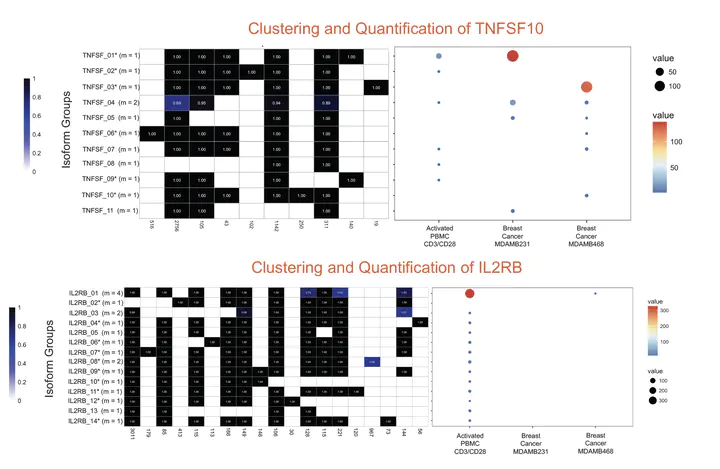 A demonstration - isoform switching in breast cancer cell lines.
A demonstration - isoform switching in breast cancer cell lines.Aging influences the immune system in various ways, including alternative splicing which determines the protein isoforms that are expressed and their respective functions. Therefore, through splicing, the elderly’s immune systems can significantly differ from the younger groups. These dissimilarities suggest that the elderly may require alternative medical treatments, including vaccines. To elucidate aging’s impact on the human immune system and potentially provide insight into improving vaccines, we obtain donor peripheral blood mononuclear cells (PBMC) samples from elderly recipients of one of the two recommended pneumococcal vaccines - 23-valent pneumococcal polysaccharide vaccine (PPSV23) and 13-valent pneumococcal conjugate vaccine (PCV-13), which differ in composition and elicited host immune responses. Then the samples are sequenced by both targeted and non-targeted long read SMRTBell sequencing (LR-seq) from Pacific Biosciences along with RNA-seq. The targeted LR-seq provides an in-depth analysis of the isoform repertoire for selected genes. The deep short reads sequencing of RNA-seq quantitates these transcripts. The data is analyzed to find differentially expressed isoforms between responder and non-responder elderly subjects and between elderly and young subjects who have been previously sequenced. Some genes, such as CD37, are found to display patterns of isoform switch between group 4 and 5. The highly expressed genes are also analyzed for their metabolic pathway involvement. Three pathways are confirmed by both RNA-seq and LR-seq data - endocytosis, focal adhesion, and regulation of actin cytoskeleton.